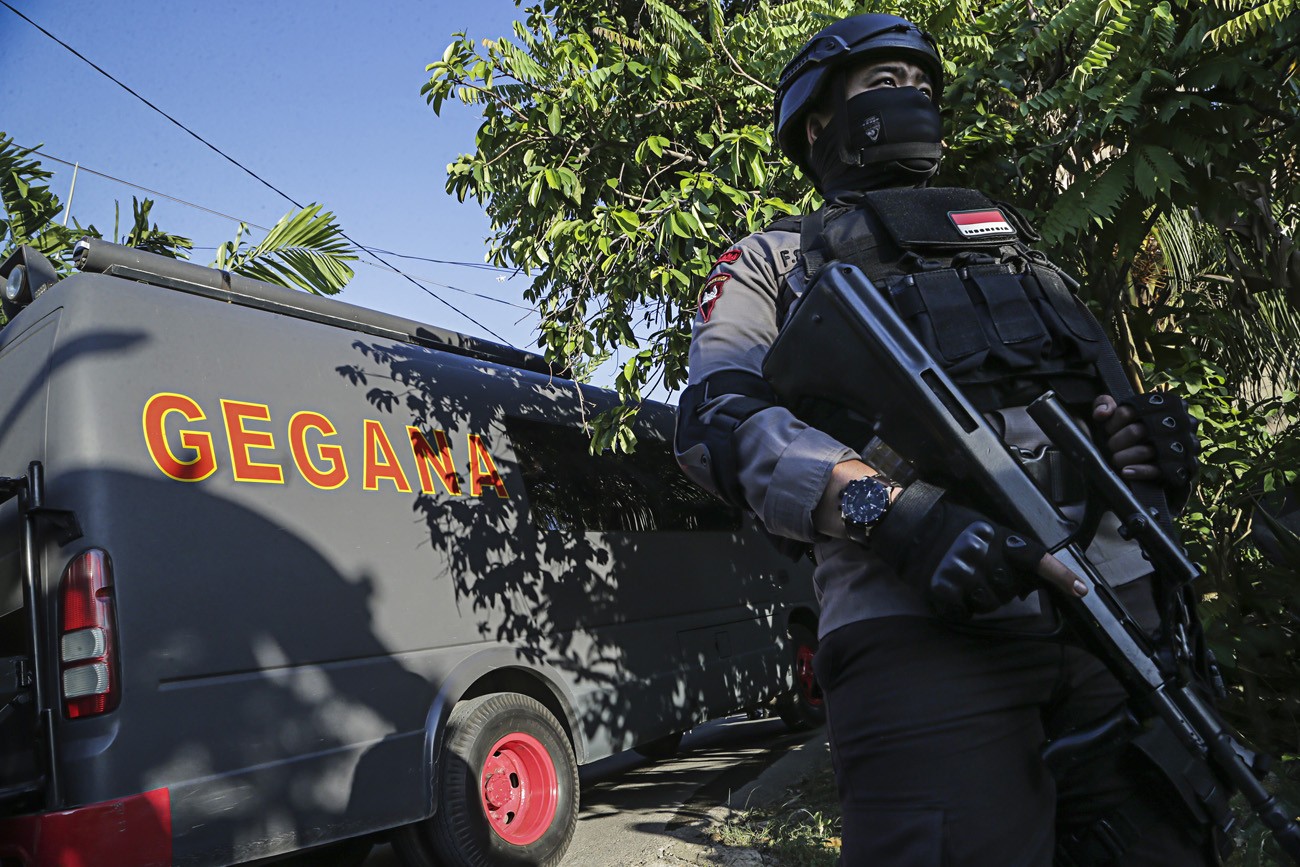Popular Reads
Top Results
Can't find what you're looking for?
View all search resultsPopular Reads
Top Results
Can't find what you're looking for?
View all search results17 Indonesians questioned about IS upon return from Turkey
Change text size
Gift Premium Articles
to Anyone
A
uthorities detained 17 citizens on Saturday upon their arrival from Turkey, a country that can be a gateway to war-torn Syria, on suspicions that they had joined the Islamic State (IS) militant group.
The 17 Indonesians, including eight women, arrived at Soekarno-Hatta International Airport in Banten on Turkish Airlines flight TK 056. Airport immigration authorities, in coordination with the police’s counterterrorism squad Densus 88, secured the citizens over allegations that they had helped IS in Syria.
“They’re still undergoing investigation at [the police’s Mobile Brigade detention center] in Kelapa Dua by Densus 88,” police spokesman Sr. Comr. Awi Setiyono told The Jakarta Post on Sunday.
The Law and Human Rights Ministry’s Directorate General of Immigration claimed that the investigation was a regular check and a preventive measure for returnees from Middle Eastern conflict zones, saying that investigators would check the travelers’ flight routes to find out whether they had traveled from Syria before boarding in Turkey, and whether they knew each other.
“It’s a standard procedure, because they returned from a conflict area. Their route was indicated to be unnatural, except they have formal evidence for official business,” the ministry’s Immigration Director General Agung Sampurno told the Post, adding that they would be released if they were proven to have no links to IS.
The immigration authorities, however, did not conduct similar procedures for other Indonesian passengers on the same flight.
The police and immigration have heightened surveillance at ports and borders amid attacks and foiled plots from IS supporters in the country.
Earlier this month, Densus 88 questioned eight Indonesian citizens who had been apprehended by Malaysian authorities because one of them had three IS-related pictures on a cell phone.
After an intensive examination, however, Malaysian authorities reached a preliminary conclusion that the eight people subscribed to mainstream teachings of Islam, which reject IS ideology. Densus 88 questioned them nevertheless.
Terrorism analyst Ridwan Habib of the University of Indonesia said it was unfair to accuse the 17 returnees of being IS supporters because people could have many reasons to go to Turkey, but added that the authorities should also be careful and not underestimate them.
“Returnees from conflict areas can be very dangerous because they can have data and long-term strategies that IS doesn’t publish through the internet,” Ridwan said.
“It’s possible for the IS group to smuggle agents here to establish a base. Even without such a smuggling mechanism, they can operate here through homegrown terrorist groups,” he added.
He said, however, that the government lacked a strong mechanism to detect which returnees had terrorism links and which did not because, as long as they had valid visas, they could claim to have been on holiday.
“[The authorities] have no clear verification of their specific locations. Meanwhile, they determine whether people are terrorists or not through their appearance. Wearing long garments or having a long beard can no longer be indications of a terrorist,” Ridwan said.
Moreover, Ridwan said, the country’s current social condition, where sectarian issues are creating heightened tension and hoaxes provoke people easily, could benefit terrorist groups and pave the way for terrorist acts.
“When the government is unstable, they can play a big role in society and play down public opinion over discourse of questioning whether it’s still good to maintain Pancasila as the country’s ideology,” he added.










